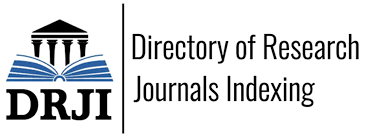Ideology and identity transformation in the deradicalization of Muslim extremists in Indonesia
DOI:
https://doi.org/10.18326/ijoresh.v1i2.189-214Keywords:
Deradicalization, Ideology, Identity transformation, Non-violent jihad, Islamic extremismAbstract
This article used a biographical approach to follow the lives of former Muslim extremists in examining individual deradicalization from the actors' perspective. The results of the extremists' deradicalization were examined using theories of Salafi ideology and identity transformation. Deradicalization marks a period of transformation - a process of taking a new ideology and identity and initiating a new power. The doers adopt a new jihad ideology after being influenced by a colorful interpretation of jihad. The deradicalization also shifts from the Salafi jihadi/irhabi to the Salafi Purist, or from a violent to a less-violent jihad. They continue to support violent jihad but restrict how its principles are used. Few extremists decide to engage in moderate or non-violent jihad on their own initiative and without the influence of others. In conclusion, deradicalization does not ensure their eradication. It implies a certain amount of transformation into a new identity, which has profound short- and long-term effects. The first demonstrates that former Muslim extremists who still identify as jihadists, adhere to their ideology, and engage in a variety of jihad-related activities. The deradicalization of the extremists will be more challenging the more in-depth the knowledge and experience of violent jihad. On the other hand, the latter is dedicated to leaving the violent jihad group and ending recidivism.
Downloads
Published
How to Cite
Issue
Section
License
Copyright
Authors who publish with Indonesian Journal of Religion, Spirituality, and Humanity agree to the following terms:
- Authors retain copyright and grant the journal right of first publication with the work simultaneously licensed under a Creative Commons Attribution License (CC BY-SA 4.0)that allows others to share the work with an acknowledgement of the work's authorship and initial publication in this journal.
- Authors have the right to enter into separate, additional contractual arrangements for the non-exclusive distribution of the journal's published version of the work (e.g., post it to an institutional repository or publish it in a book), with an acknowledgment of its initial publication in this journal.
- Authors are permitted and encouraged to post their work online (e.g., in institutional repositories or on their website) prior to and during the submission process, as it can lead to productive exchanges, as well as earlier and greater citation of published work.
Licensing
This work is licensed under a Creative Commons Attribution-ShareAlike 4.0 International License.









